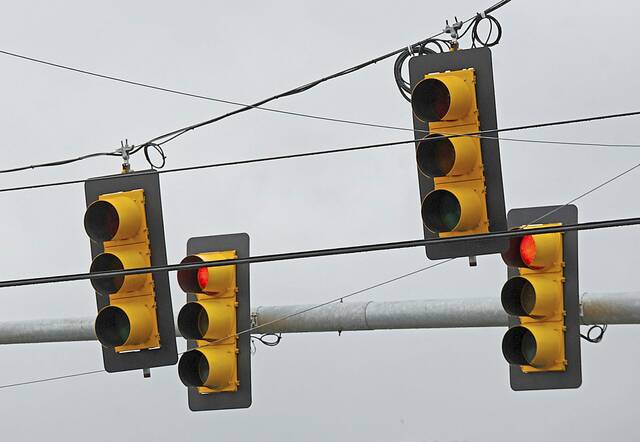https://triblive.com/local/pittsburgh-moving-ahead-with-automated-red-light-enforcement/
Pittsburgh moving ahead with automated red light enforcement

Pittsburgh is moving ahead with an effort to crack down on motorists running red lights.
Pittsburgh City Council last year authorized the use of automated red light enforcement, technology that would use cameras to ticket drivers who don’t stop at red lights without requiring officers to monitor the intersections.
Legislation introduced to City Council on Tuesday would allow the city to contract with Arizona-based Verra Mobility to install and operate the first red light cameras throughout the city.
Officials have touted the measure as a way to reduce dangerous driving and curb fatal crashes.
“We have to take strong measures like this that will, for some people, feel unpopular,” Councilwoman Erika Strassburger, D-Squirrel Hill, told TribLive. “But this is about saving lives.”
Strassburger, who sponsored the legislation, acknowledged some people may be unhappy about a new technology that could issue them a ticket. But she said signs will be installed at impacted intersections so drivers know the cameras are there.
There will be a 60-day warning period for the first batch of cameras, she said. During that time, anyone who is caught running a red light by the automated system will receive a warning, but not a real ticket.
The proposed deal with Verra Mobility would cost nearly $14 million over a five-year contract. But the city can recoup the costs with revenue generated from the tickets people will have to pay when the system catches them cruising through red lights.
The first cameras are set to be installed this winter, according to information provided by Strassburger.
Officials have not yet announced which intersections will see the new technology installed. Strassburger said decisions will be made based on a data-driven approach that looks at the most dangerous areas. The Pennsylvania Department of Transportation will have to sign off on the city’s choices.
Six intersections will see cameras installed in the initial round, Strassburger said. Another six intersections will be added every year throughout the five-year contract, up to 30 by the end of 2029.
Each intersection will have, on average, four cameras installed.
Copyright ©2026— Trib Total Media, LLC (TribLIVE.com)
